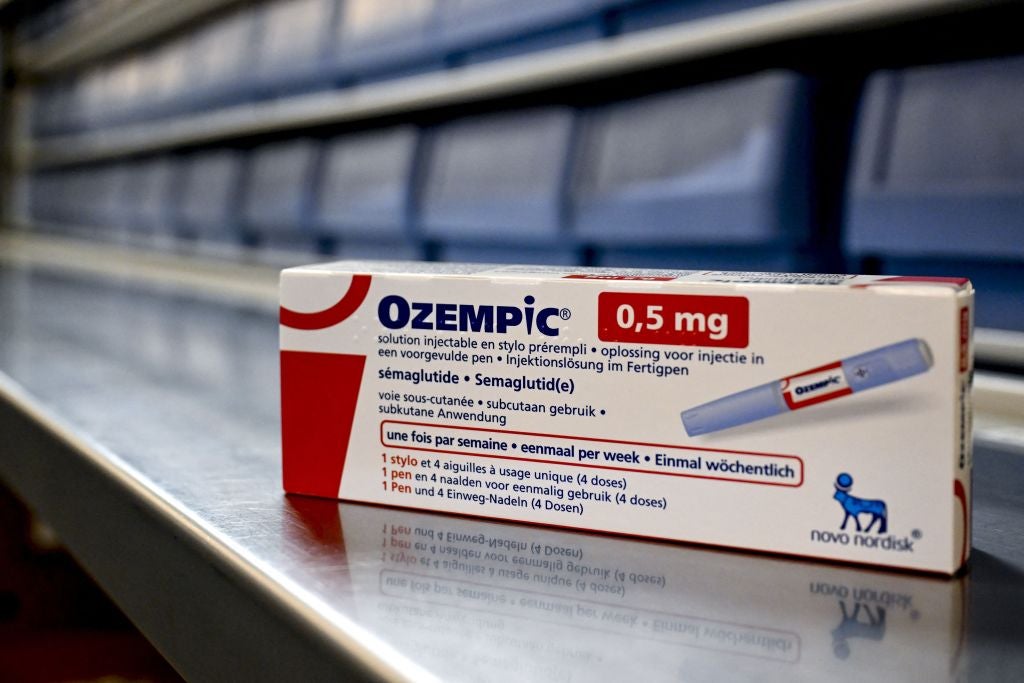People with type 2 diabetes in England could be offered treatments, including weight loss jabs, sooner in the biggest shake-up of care in a decade.
New draft guidance from the National Institute for Health and Care Excellence (Nice) recommends a shift from a one-size-fits-all approach of starting everyone on the same medication to more personalised care that aims to prevent complications like heart failure and heart attacks.
Newer type 2 diabetes drugs, known as SGLT-2 inhibitors, would be made a first-line treatment option in a move that could eventually help save tens of thousands of lives.
SGLT-2 inhibitors, which include canagliflozin, dapagliflozin, empagliflozin, and ertugliflozin, are once-a-day tablets that reduce blood sugar levels by helping the kidneys remove glucose, which is passed from the body through urine. However, analysis by Nice found these drugs are under-prescribed.
The new guidelines recommend patients who cannot tolerate metformin – the first-choice in type 2 diabetes medication – should start with an SGLT-2 inhibitor on its own.

The decision comes after evidence suggested these drugs protect the heart and kidneys as well as control blood sugar, Nice said.
It is estimated that the change could save almost 22,000 lives once uptake reaches 90 per cent of the population.
Nice also suggests some groups of patients would also benefit from GLP-1 receptor agonists such as liraglutide or semaglutide sooner, rather than keeping them for the later stages of treatment.
Semaglutide, sold under the brand name Ozempic, is licensed in the UK to treat type 2 diabetes, while its other brand – Wegovy – is also used by the NHS to help obese people lose weight.
Professor Jonathan Benger, deputy chief executive and chief medical officer at Nice, said: “This guidance means more people will be offered medicines where it is right to do so to reduce their future risk of ill health. This represents a significant evolution in how we approach type 2 diabetes treatment.
“We’re moving beyond simply managing blood sugar to taking a holistic view of a person’s health, particularly their cardiovascular and kidney health.
“The evidence shows that certain medicines can provide important cardiovascular benefits, and by recommending them as part of initial treatment, we could help prevent heart attacks, strokes and other serious complications before they occur.
“This is particularly important given that cardiovascular disease is the leading cause of death in people with type 2 diabetes.”

Around 4.6 million people in the UK are living with diabetes, with nine in 10 of those having type 2.
However, it is estimated that a further 1.3 million people may have undiagnosed type 2 diabetes.
Nice analysed the records of 590,000 people and found SGLT-2 inhibitors are under-prescribed, particularly to women, older people, and black patients.
Prof Benger added: “The evidence from our analysis is clear. There are prescribing gaps that need to be addressed.
“The guideline update published today will help to increase equitable uptake of SGLT-2 inhibitors, which we know can prevent serious health complications.”
Dr Waqaar Shah, chairman of the guideline committee, added: “We know that SGLT-2 inhibitors are currently under-prescribed, and our health economics analysis shows that people living in the most deprived areas would particularly benefit from universal access to these treatments.
“These recommendations could help reduce health inequalities while providing better outcomes for everyone.”
Symptoms of type 2 diabetes
The most common symptoms of type 2 diabetes are:
- feeling very tired
- peeing more than usual
- feeling thirsty all the time
- losing weight without trying to
Other symptoms can include:
- blurred vision
- cuts or wounds taking longer to heal
- itching around your penis or vagina, or you keep getting thrush
Elsewhere, the draft guidance suggests different treatments for diabetes patients with certain characteristics or health conditions.
These include adults with cardiovascular disease, who should be offered a triple therapy including a GLP-1 receptor agonist.
Meanwhile, adults diagnosed with type 2 diabetes before 40 should be offered dual therapy before a GLP-1 receptor agonist is considered, while patients with chronic kidney disease should have tailored recommendations based on their kidney function.
A public consultation on the new Nice guidelines is open until October 2.
Douglas Twenefour, head of clinical at Diabetes UK, said: “This long-awaited announcement propels type 2 diabetes treatment into the 21st century.
“Boosting access to newer treatments will be transformative for people with type 2 diabetes, while ensuring the UK keeps pace with the global momentum in treating the condition.
“The majority of people with type 2 diabetes are not currently taking the most effective medication for them, putting them at risk of devastating diabetes-related complications.
“Diabetes is a leading cause of cardiovascular disease, and tailoring treatment based on individual risk could protect thousands against heart attacks and kidney disease.
“These guidelines could go a long way to easing the burden of living with this relentless condition, as well as helping to address inequities in type 2 diabetes treatments and outcomes.”
EuroMillions record-breaking £210m jackpot won by lucky lottery ticket holder
Type 2 diabetes patients set for major shake-up in care
At-home hepatitis C test identifies hundreds with silent but deadly virus
At-home hepatitis C tests identify hundreds with the virus
Major study uncovers health risks of vaping for young people
Largest study on youth vaping suggests it is a gateway to smoking







